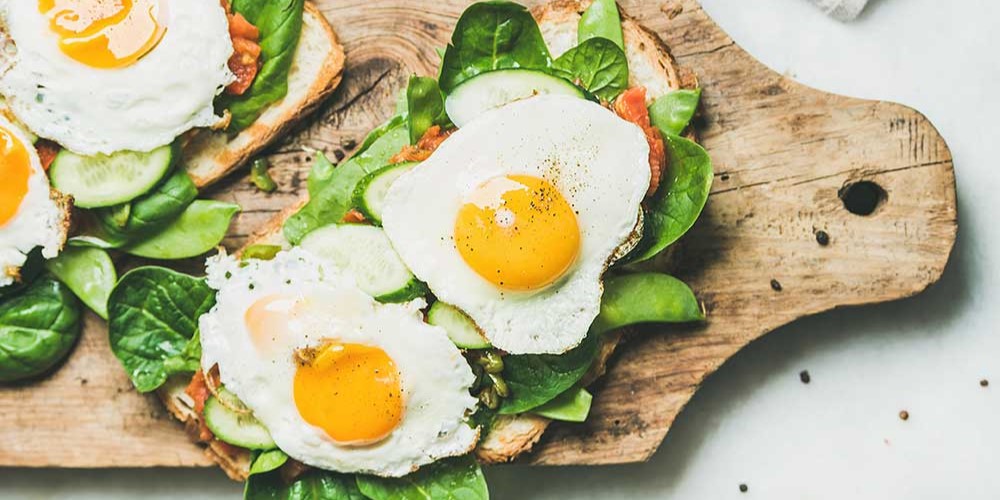7 foods that may help with anxiety
Certain foods could help to reduce symptoms of anxiety – health journalist Ceri Moorhouse discovers seven ingredients that may ease your daily worries

Anxiety is a common disorder with most people experiencing symptoms ranging from feeling worried and on edge to experiencing heart palpitations or sleeplessness.
There are many types of disorder – and some may require more serious treatment than others, such as cognitive behavioural therapy (CBT) and medication. You should speak to your GP if you’re concerned.
But, staying on top of mild anxiety can be as simple as exercising regularly, meditating and eating certain foods. There is growing evidence of a relationship between what we eat and how we feel.
Eating regular meals is key as this will help to maintain your blood sugar levels and in turn, your mood.
Registered dietician and British Dietetic Association spokesperson Kirsty Bamping helps to explain why these healthy foods could help the symptoms of anxiety.
Mackerel (or walnuts if you’re veggie)
Higher levels of anxiety and depression have been linked to brain inflammation, which is likely why anti-inflammatory omega-3 oils, found in oily fish, have been found to reduce symptoms of anxiety by up to 20%.
Bamping recommends: “A minimum of two portions of oily fish per week, such as mackerel, salmon, herring, sardines, pilchards and trout.” Non-fish sources include walnuts and rapeseed oil.
Wholegrain cereal
“A lack of B vitamins 6 and 12 in the diet can make us feel tired and more likely to feel anxious,” says Bamping.
“Many foods are fortified with B vitamins, such as wholegrain cereals. Foods high in vitamin B6 include bananas, poultry, seafood and leafy green vegetables. Those high in vitamin B12 include animal products such as meat, fish, eggs and dairy, and shellfish such as clams, crab and mussels.”
Red meat (or lentils if you’re veggie)
Iron plays an important role in our cognitive and social-emotional development, and so a deficit of the mineral has been linked with psychiatric disorders such as anxiety.
The NHS recommends 8.7mg a day for men over 18 years and women over 50, and 14.8mg for women aged 19-50 years. Luckily, it’s easy to get your fill of iron from your regular diet.
“Good sources of iron include red meat, poultry and fish. Iron absorption may also be helped by avoiding drinking tea with meals,” says Bamping. Lentils and chickpeas are plant sources of iron.
Eggs (or spinach if you’re vegan)
Tryptophan is an essential amino acid that helps our production of protein. It has been linked with a reduction in anxiety and improved mood.
“Good sources include eggs, fish and poultry. Some green leafy vegetables, such as spinach, and seeds also provide a source of tryptophan.” Tryptophan is also associated with sleep, so getting a healthy dose of it will help to alleviate your sleeplessness.
Potatoes
“You need to feed your brain regularly with the right mix of nutrients for it to work properly. Unlike other organs, your brain relies on a steady supply of glucose, ideally from starchy carbohydrates, as its primary fuel,”
“Starchy carbohydrates also boost the brain chemical serotonin, which has a calming effect. Examples of starchy carbohydrates include potatoes, bread, cereals, rice and pasta.”
Vitamin D
Between October and March, most people don’t get enough vitamin D from natural sources, and insufficient doses have been linked with anxiety.
While a couple of foods contain the vitamin, including egg yolks and liver, according to Bamping, “the only way to ensure a healthy vitamin D status is to take a supplement.
All adults and children over the age of one should consider a daily supplement. Look for ones that contain 10 micrograms of vitamin D.”
Water
Last but not least, staying hydrated is key for our mental health. “Drinking more fluid can help to improve our thought processes, as dehydration can make us lack concentration. Water is great, but plenty of other drinks count too, including milk.”
What to avoid
According to researchers at the University of Aberdeen, foods that are high in fat and/or sugar could trigger anxiety-related behaviour so try to cut back on sugary desserts and soft drinks.
Reducing your intake of caffeine and alcohol will help to stabilise your mood. Giving up smoking will also help as nicotine can raise both blood pressure and symptoms of anxiety.
Do you feel like stress is taking over? Read our guide to reading the signs and taking back control.
Recent articles

Feeling lonely? 4 ways to combat loneliness this season
For all the fun and frolics of the festive season, for many it can bring an equal amount of heartache. So, why not lift your - or someone else’s - spirits this time of year with these simple tips?

The way to avoid festive burnout? Just say ‘no’
For all of its fun, the festive period can be incredibly stressful too. Hoping to escape burnout this holiday season? Try saying ‘no’, writes Jennifer Wallis

What’s holding women back from getting active this winter?
Less than one in four women hit the recommended weekly exercise guidance – why? We asked women’s personal trainer and founder of LDN MUMS FITNESS, Sarah Campus

